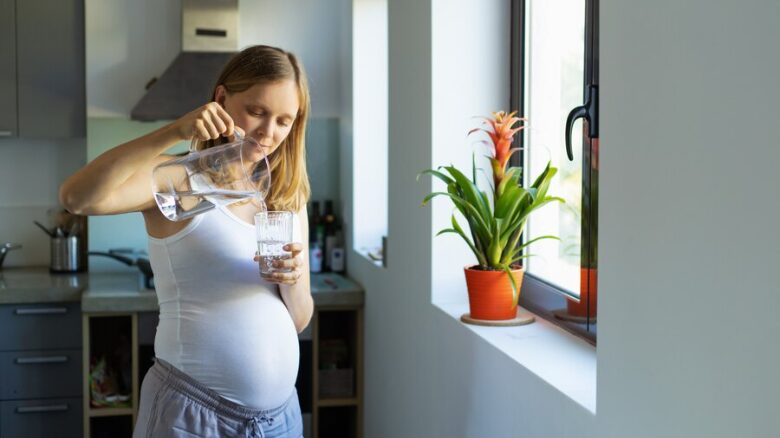
Pregnancy is a unique journey, full of wonder, anticipation, and a fair share of questions. As your body nurtures a new life, it demands a little extra care and attention. Among the myriad of advice you'll encounter, hydration stands out as a crucial yet sometimes overlooked aspect of prenatal care. Water is not just a thirst quencher; it plays a vital role in your health and the development of your baby. But how much should you drink, and why is it so important?
Have you ever wondered how something as simple as water could be a powerful ally in your pregnancy journey?
Key Takeaways:
- Proper hydration during pregnancy supports both your health and your baby's development
- Aim to drink at least 2.3 litres (about ten 8-ounce glasses) of fluids daily
- Hydration helps prevent common pregnancy issues like constipation and swelling
- Easy tips and tricks can help you incorporate more fluids into your daily routine
- Staying hydrated isn't just about water; other fluids and foods contribute too
Hydration During Pregnancy: Why It Matters and How Much to Drink
Hydration during pregnancy isn't just a matter of quenching your thirst; it's about ensuring that your body functions efficiently for both you and your baby. The demand for fluids increases as your blood volume expands and your body accommodates the growing needs of your child. This stage of life requires more than just a slight uptick in water intake; it calls for a conscientious effort to maintain optimal hydration levels.
Pregnant women need more water than usual to support the increased blood volume, amniotic fluid production, and the overall metabolic activities that accompany pregnancy. Water acts as a transportation medium for nutrients to reach your baby, and it helps flush out toxins and waste products from your body. Without adequate hydration, you might face issues like dehydration, which can lead to headaches, nausea, and dizziness—none of which are ideal in your condition.
Moreover, staying hydrated can help prevent common pregnancy troubles such as constipation, urinary tract infections, and swelling. Swelling, or oedema, is common in pregnancy and can be exacerbated by inadequate fluid intake. Proper hydration helps regulate body temperature and can reduce the risk of preterm labour, which is often associated with dehydration. So, it's not just about drinking water but understanding the essential role it plays in a healthy pregnancy.
You might wonder, "How much water should I really be drinking?" The general recommendation is to consume at least 2.3 litres of fluids each day during pregnancy. This roughly translates to about ten 8-ounce glasses. However, if you find yourself in sweltering weather or engaging in physical activity, you might need even more. The colour of your urine can be a handy indicator—aim for a light yellow hue, which suggests good hydration.
Incorporating more fluids doesn't have to be a chore. There are creative and enjoyable ways to make sure you're getting enough water and other hydrating fluids. Start by keeping a water bottle with you at all times as a gentle reminder to sip throughout the day. Infuse your water with slices of lemon, cucumber, or mint to add a refreshing twist. Herbal teas and fresh fruit juices can also contribute to your daily fluid intake. Just be mindful of sugar content when choosing juices.
While water should be your primary source of hydration, don't forget that other fluids and even certain foods can help. Fruits and vegetables with high water content, such as watermelon, oranges, cucumbers, and tomatoes, are excellent additions to your diet. Soups and broths are not only nourishing but also hydrating. By incorporating a variety of fluids and water-rich foods, you can easily meet your hydration needs without feeling overwhelmed.
In conclusion, staying hydrated during pregnancy is not just beneficial; it's essential. It supports your wellbeing and ensures your baby receives the necessary nutrients for healthy development. By understanding the importance of hydration and adopting simple strategies to increase your fluid intake, you can make this aspect of prenatal care a seamless part of your daily routine.
Summary:
Hydration is a pivotal component of a healthy pregnancy. By maintaining adequate fluid intake, you are taking a proactive step towards ensuring your and your baby's health. So, what are your favourite ways to stay hydrated, and have you noticed any particular benefits during your pregnancy journey?


